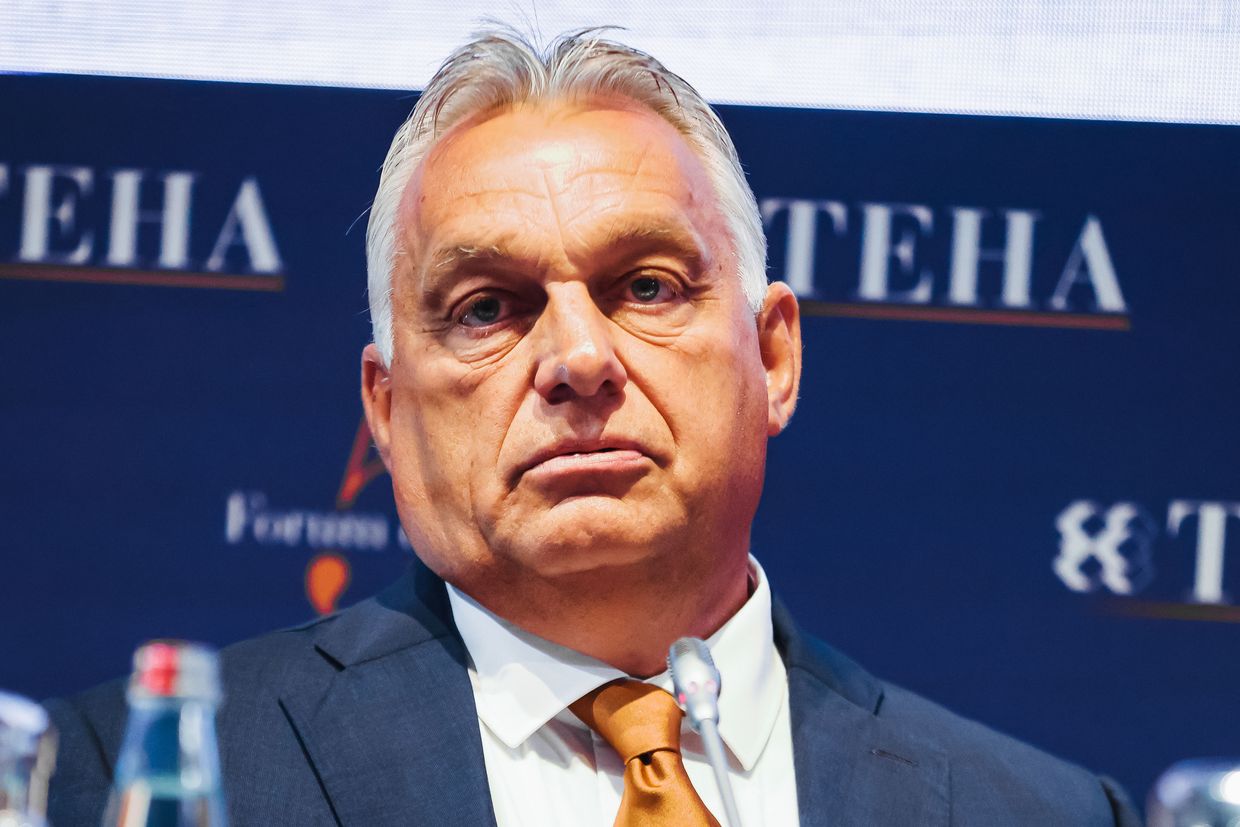Hungarians protest 'ruling party propaganda,' demand more media freedom

Thousands of Hungarians gathered in Budapest on Oct. 5 to demand greater press freedom and a halt to what they called a "propaganda factory" run by Hungarian Prime Minister Viktor Orban's government.
The protests, launched outside of the building of the state-owned MTVA media company, were organized by Hungary's leading opposition figure and head of the Tisza party, Peter Magyar.
A former member of Orban's Fidesz party, Magyar has risen up as the prime minister's chief political rival, lambasting the incumbent government for corruption and cronyism.
"Repeat a lie enough times and people will believe it to be the truth. This is Adolf Hitler's advice to Fidesz, to the propaganda of the ruling party," the opposition leader told the crowd, according to Euronews.
"What is going on today in Hungary in 2024 under the name of public service is a global scandal."
Press freedom organizations have lambasted Orban's government for building up a media empire within Hungary and exerting pressure on independent outlets. Reporters Without Borders said that public broadcasting "was turned into a propaganda machine" while "several private media outlets were taken over or silenced."
In its 2019 report, the European Federation of Journalists said that MTVA, the media company running several radio and TV channels, a news agency, and online news portals, has been "deformed (from a public broadcaster) into a state broadcaster."
The 16-point list of demands published by the Tisza party on Oct. 4 includes the resignation of MTVA's CEO, restoring political supervision over public media, and other steps supposedly aimed at transforming the broadcaster back into public service media.
Budapest clashed with the EU over media freedom after European governments and the European Parliament agreed on a Media Freedom Act, which seeks to combat creeping government influence over the press.
Brussels, which has frozen billions of euros of Hungary-bound funds over the rule of law issues, has also grown frustrated with Orban's consistent obstructions of sanctions against Russia and military aid for Ukraine.
Magyar visited Kyiv in July in the wake of a deadly Russian attack against the Okhmatdyt hospital, bringing humanitarian aid. In early June, Magyar said his party shares the position of the Hungarian government not to send the country's troops or weapons to Ukraine, but he affirmed Kyiv's right to self-defense.











